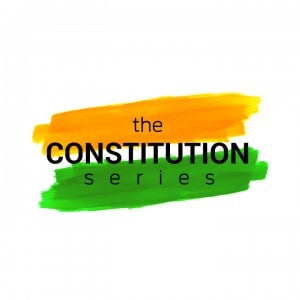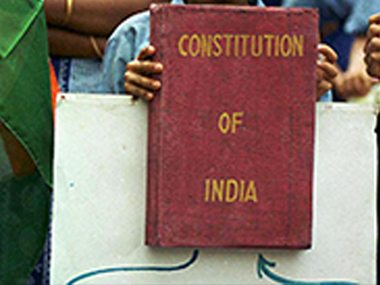Editors Note: As India celebrates its 69th Republic Day on 26 January, this five-part series examines how India’s Constitution came to be, how it has been contested over the years and what potential challenges lie ahead. It is almost treason in the eyes of some to even suggest that the Constitution of India may not be the best Constitution in the world. But given that so much time has passed since it was enacted, it is perhaps a question that is worth examining. It has been amended 100 times in the 68 years since it was enacted, an average of more than one amendment a year. Each amendment was brought about either by necessity or political expediency. These amendments mean that the Constitution we have today, while similar in appearance to the one that was enacted, is a functionally different creature. For example, take the point on procedural versus substantive due process. The Constituent Assembly expressly debated that point. The wording of Article 21 was debated at length to decide if they would use “procedure established by law” or “due process of law”. This was to essentially avoid the doctrine brought out in Menaka Gandhi’s case. But nonetheless, the judiciary read in expressly what the Constituent Assembly had sought to avoid. [caption id=“attachment_4314327” align=“alignleft” width=“380”]  Representational image. AFP[/caption] The preamble too has seen amendment. The world “socialist” was never there, nor was the term “secular”. They were inserted into our Preamble via an amendment. “Socialist” carried political connotations; nations that were Socialist Republics and People’s Republics at the time were satellite states of the Soviet Union. By remaining a mere “Republic”, India proclaimed it was non-aligned. By adding “socialist” to the Preamble, India openly aligned with the Soviets. But the question remains if the word still has relevance in the present Constitution. For, there are no more socialist powers and no more alignments. It’s a multipolar world and India is heading on the path to becoming a pole in its own right. Then there is this word “secular”. Perhaps no other word divides the nation more than secular right now. For some it is an insult and for others it is an article of faith. There is no broad consensus on what it means yet. Does it mean the State does not recognise religion at all or does it merely mean that everyone is allowed to practice what they like? If it is the latter, India was always secular from the start. If it is both the former and the later then India has long way to go before she becomes secular. To become secular, India will have to abolish the personal laws and enact a uniform civil code. Strangely enough, the parties that want to do this are the ones that are against having the word “secular” in the Preamble. And parties that want to retain the word want to keep the personal laws. A uniquely Indian problem, for which we are yet to devise our own, uniquely Indian, solution. Our Constitution started with a system by which the Executive Branch had a say in who the judges would be. The Chief Justice of India would be consulted the final decision would lie with the President. But after the Emergency, the Judiciary started taking control of this power, and today the Executive plays second fiddle to the senior judges of the Supreme Court when it comes to the appointment of judges. This was not the intention of the framers, yet the circumstances of history have resulted in its occurrence. Is this something the country wants to be the case in the future as well? The National Judicial Appointments Commission was struck down by the Supreme Court. And this was a constitutional amendment. If the country finally decides it wants to change certain aspects of the status quo, can it ever do so in the future? If we wished to move from the present parliamentary system to a presidential system, would it be possible for us to effect this change? Perhaps if we wanted to call a new Assembly to draft and enact a new Constitution to suit the present times, would the people be able to? These are open questions that need to be answered. The US Constitution contains a mechanism inbuilt for a constitutional convention to propose amendments, and even reconsider the Constitution. Ours does not.  The decision may finally lie with the Supreme Court. If the Constitution has to be repealed and a new one has to take its place, then the president will have to refer the question to the apex court under Article 143 and seek its advice on how to go about it. If the Supreme Court tells us it’s possible and tells us how, then we will have to follow that process. The fact is that a document that needed to be amended 100 times in less than 70 years of its existence may not be the greatest document in the world, it may warrant a rethink. But we need to bear in mind that it’s not the draft alone but also the principles behind it that matter. The Fundamental Rights, the respect for the rule of law, and the fact that everyone has finally toed the constitutional line, no matter how politically powerful they were. These facts tell us that this Constitution of ours is something to write home about at the end of the day. Read earlier articles part of our Constitution series: Click here to read Part I — 69th Republic Day: Making of the Indian Constitution and country's path to complete Independence Click here to read Part II — The long walk to the Republic: Constituent Assembly wasn't elected by the people, but worked like a model Parliament Click here to read Part III — How the Republic was born: BR Ambedkar-led Drafting Committee replaced the British monarch with the Constitution Click here to read Part IV — India's road to Republic: When judiciary had to draw the line which shaped the Constitution
It is almost treason in the eyes of some to even suggest that the Constitution of India may not be the best Constitution in the world. But given that so much time has passed since it was enacted, it is perhaps a question that is worth examining
Advertisement
End of Article


)

)
)
)
)
)
)
)
)



